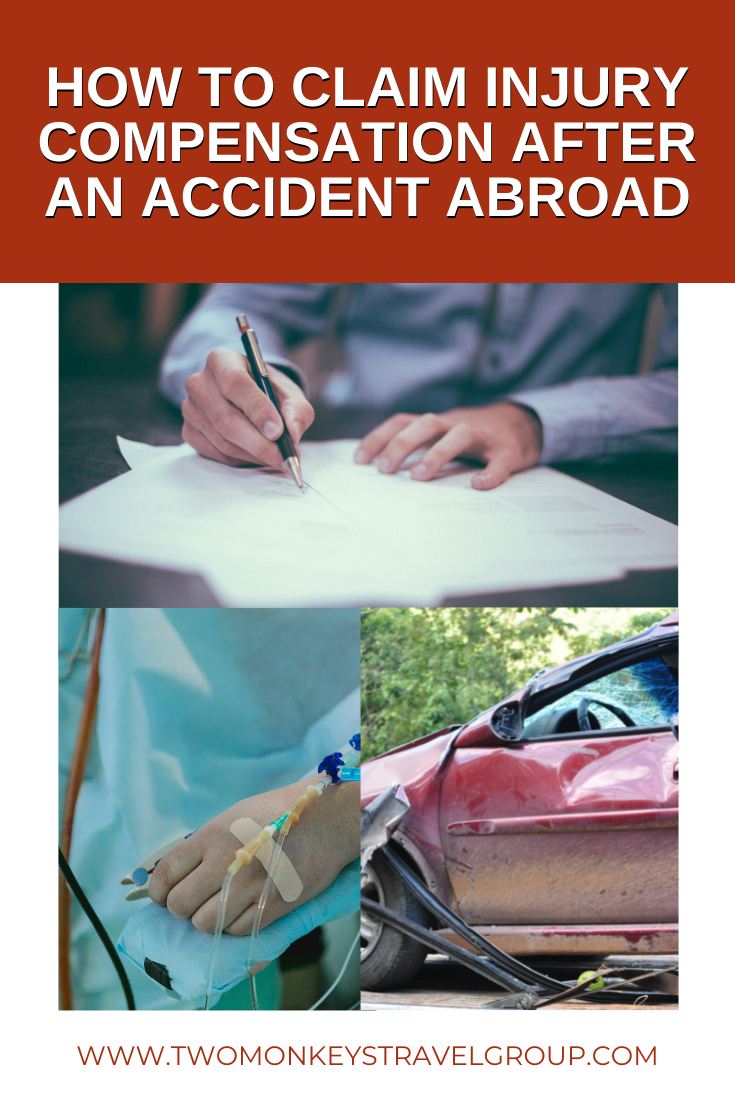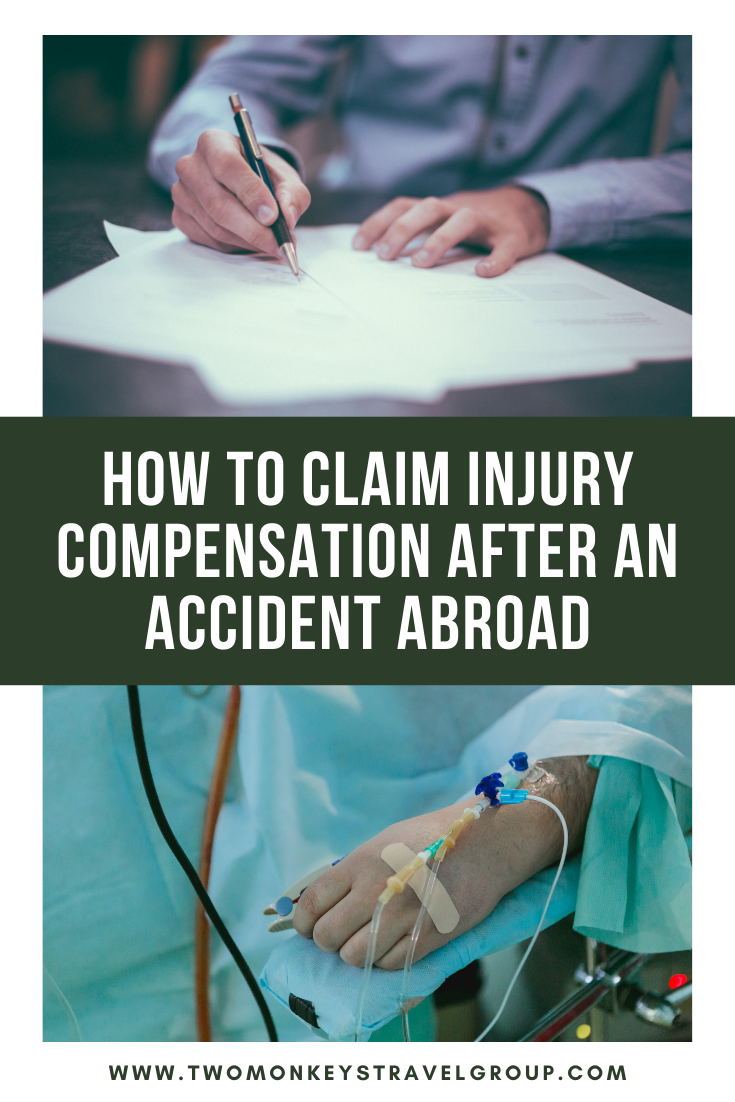How to Claim Injury Compensation After an Accident Abroad
So you are planning an epic backpacking trip or gap year adventure? This post will help you to prepare for an unexpected injury or illness when traveling and how you can claim injury compensation after an accident abroad.
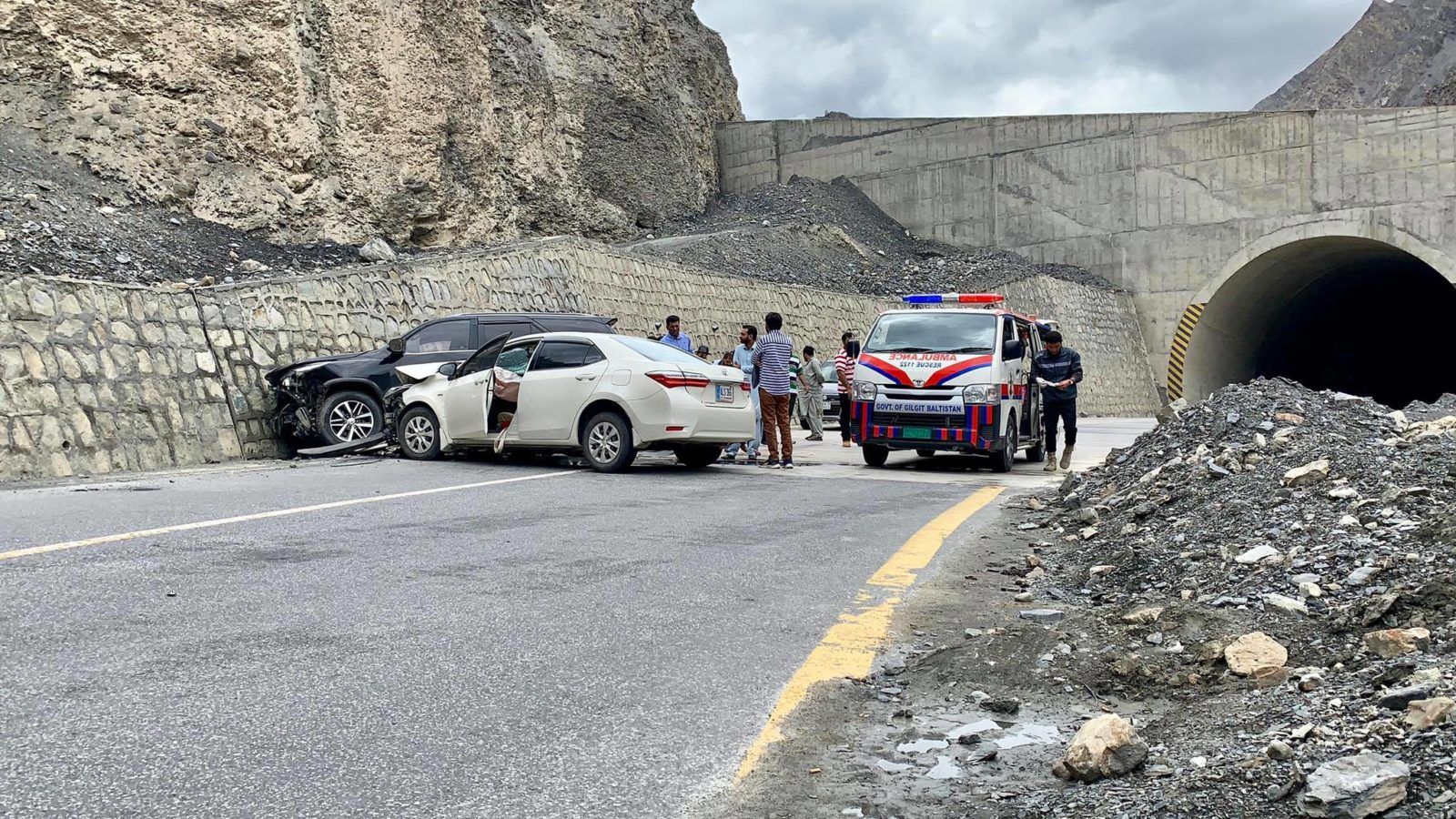
Medical treatment and repatriation costs can be eye-wateringly high, and 48% of Brits don’t realise they are liable to pay for their medical bills while traveling abroad. The insurance industry helps over 4,000 Brits abroad every week, and yet one in five of us risks going travelling without travel insurance.
Knowing what do following an injury or a medical emergency can improve your chances of making a successful claim when you return home.
- Marine Insurance – Why we Should all Insure our Boats and which Marine Insurance to Choose!
- AXA Insurance for Schengen Visa – The Cheapest and Best Travel Insurance for Filipinos
- Best Online Courses You Could Take to Help You Travel the World
- Denied Schengen Visa – Common Reasons for Schengen Visa Rejection [And What You Should Do About It]
- How to Choose the Best Travel Insurance for Filipinos [With My Recommendations!]
Table of Contents
Planning ahead
Before you depart, you should carry out as much research on your destination(s) as possible. Collect as much pertinent information as you can and ensure you take this info with you.
As a minimum, you need to get hold of:
- phone numbers for ambulance and emergency services,
- the relevant British Consulate or Embassy,
- your travel insurer’s accident notification department, and
- any other emergency contacts.emergency numbers.
The Gov.uk website has a comprehensive list of information and services to assist British Nationals in all countries.
When traveling, make sure somebody is aware of your itinerary. Keep your ID (passport or photocopy) and next of kin and/or emergency contact details about your person. You should also keep any details of specific medical conditions (such as Type 1 Diabetes) about your person in case you are incapacitated.

Carrying a suitable medical kit is a good idea, and you may even consider a first aid course prior to setting off.
It is tempting to buy the cheapest travel insurance policy from a comparison site or, worse still, attempt to save money by not buying insurance at all. Finding the right insurance policy for your trip is critical.
Many insurance policies include a legal cover that can be invaluable in the event of an injury. Some policies don’t cover personal injury, however, so you should check this first.
Nearly all policies exclude cover for certain activities such as banana boat rides, high altitude hiking, horse riding, and jet skiing. If you are working abroad, most standard travel insurance policies also exclude injuries that occur as a result of your employment.
It is critical that you read the policy terms and conditions and make sure that you are covered for any activities you are planning.
The most common type of accidents abroad relates to motorbikes and mopeds, swimming and diving, adventure and winter sports. Most of these activities are not covered by standard policies.
The following checklist gives you an idea of what to do if you do have an accident or become sick abroad.
1. Seek medical attention.
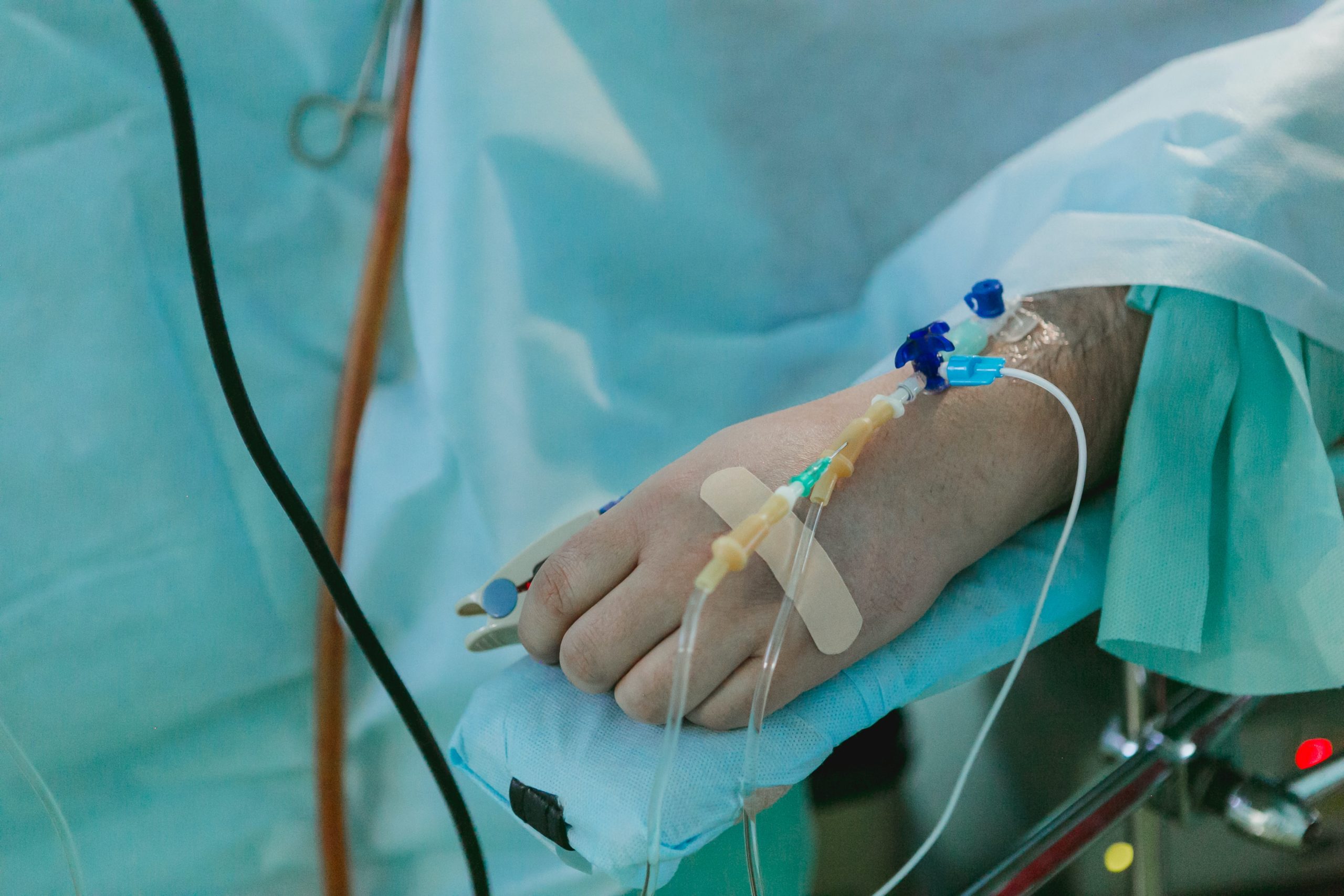
If the situation warrants it, call the local emergency services. Some parts of the world don’t have “local emergency services”, however, so you should have a clear idea before you travel of who to go to or contact if a medical emergency does arise.
Your travel insurance documents may give details of a specific local medical assistance company for you to contact. The insurer may have vetted this medical provider as providing a suitable standard of care. This can also simplify the recovery of any treatment costs.
If you cannot find the details of this medical assistance company, seek medical help from the nearest hospital, doctor or other medical provider.
2. Notify your travel insurance company.

You should notify your travel insurer as soon as possible after an accident. Some insurance policies have a clause stating that they must be notified within 24 hours.
If you are travelling with a group (e.g. a volunteering organisation) you should also notify the organiser or travel rep.
3. Consider contacting the British Embassy or Consulate
In cases of serious injury or illness, you may wish to contact the nearest British Embassy or Consulate. If you are hospitalised abroad, the Foreign & Commonwealth Office (FCO) can contact your friends and family and can liaise with your travel insurance company on your behalf.
The FCO will not pay for medical bills but they may be able to help arrange a flight back to the UK.
4. Claiming compensation for your injury
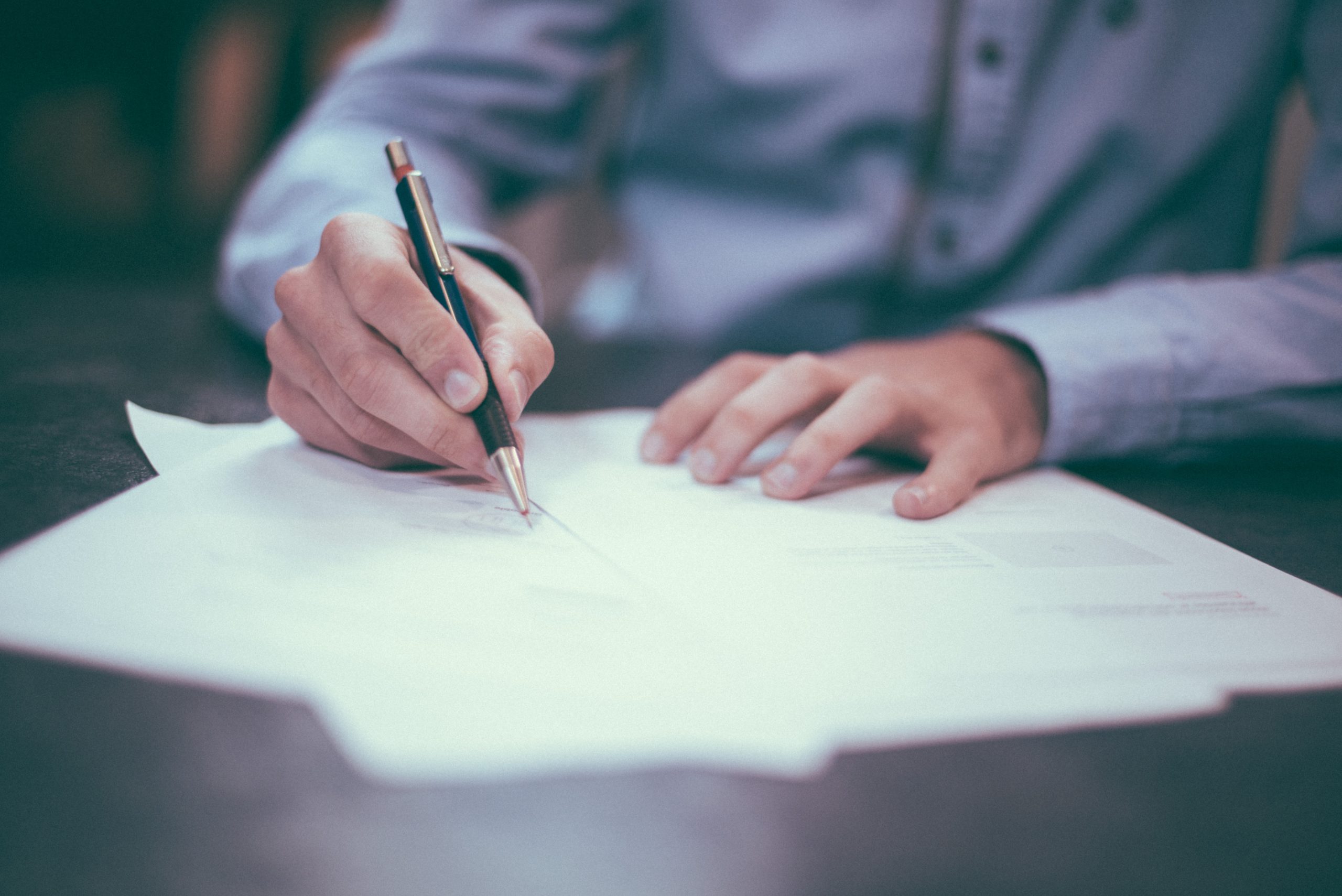
If you suffer an injury or illness as a result of the recklessness or negligence of another person, company or organisation, you may be entitled to claim compensation. Compensation is awarded to help people meet the treatment and care costs of recovery and to compensate for financial loss.
In the United States, the statute of limitations varies from state to state, but usually, you’ll have between two to four years after an accident to file a personal injury claim. “You don’t have to file your claim immediately, but the countdown begins the moment your accident occurs,” says South Florida personal injury attorney Matt Dolman of Sibley Dolman Gipe Accident Injury Lawyers.
Dolman also adds, “When your injury is due to someone else’s negligence, such as in an auto accident or a slip and fall incident, you have four years from the day of your injury to either settle or sue in Florida.” So, if you sustained your injuries on a trip to Disney World in Orlando, Florida, for example, you’d want to seek help from a local Florida personal injury attorney before traveling back home.
Contact a lawyer as soon as you can after your injury. Physical evidence, eyewitnesses, and surveillance video can all disappear between the time of your injury and the expiration of the statute of limitations. You will want a lawyer to immediately preserve all of the evidence you need to present a strong compensation claim.
In the UK you usually have up to 3 years after the accident to begin a claim. The process and length of time in which you are eligible to claim do vary from country to country. Quittance personal injury has a useful calculator which calculates how long you have to make an injury claim in different countries.
Making a claim for an accident abroad adds a varying degree of complexity depending on where in the world the accident occurs. In France, you may have 5 years (surprisingly there is no standardisation in Europe) to make a claim, while in China you have only 1 year.
Wherever the accident occurs, the chances of a claim being successful are greatly aided if you:
- Keep all documents that offer supporting evidence of the cause of the accident or illness. These docs might include police reports, photocopies of accident books, and photographs of the accident scene or conditions.
- Get the names and contact details of witnesses so that witness statements can be gathered.
- Keep all documents and receipts that offer supporting evidence of the medical treatment you have received. These docs might include prescriptions, medical letters and certificates, hospital admission and discharge letters.
- Keep all receipts for any other costs incurred as a result of the accident, including travel costs or replacement equipment. These can often be compensated for as part of the claim process.
The amount of compensation you will be entitled to vary from country to country and is likely to depend on the severity of the injury or illness. Use this tool to calculate how much compensation you could be entitled to.
Planning ahead can reduce the probability of an accident and prepare you for what to do if something does happen.
If you have been injured abroad, first get the medical attention you need. Knowing what to do next, however, can mean the difference between shelling out £1,000’s for emergency expenses and replacement gear, and claiming that money back from the party responsible for the accident or illness.

Are you on Pinterest? Pin these!

